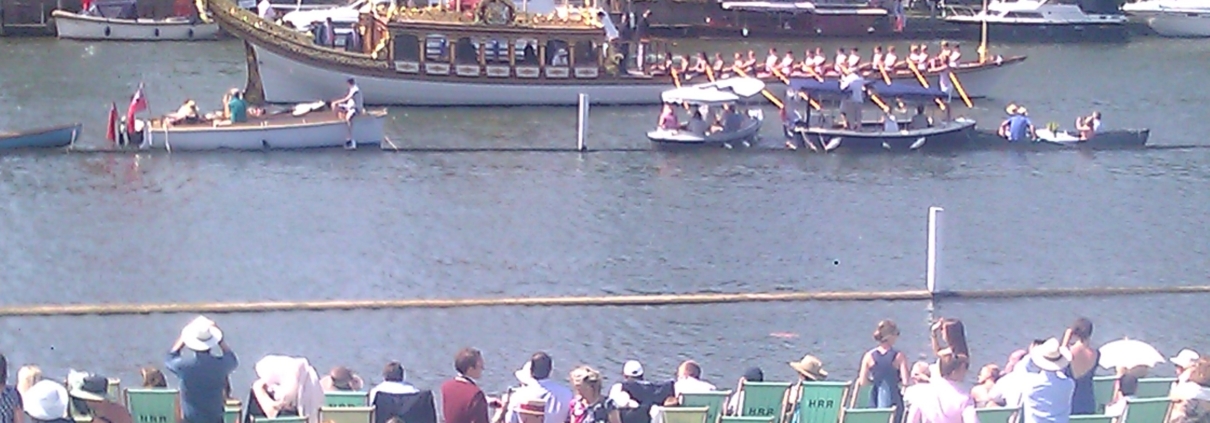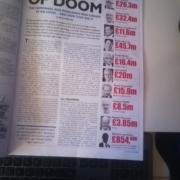The 2021 Bad Buying Awards – the UK Winners
Two more awards today.
UK (Private sector): The UK Water Industry
Not spending enough money (and failed regulation…)
There were a number of long-running procurement-related scandals which continued to rumble on this year, notably the investigations into the Grenfell tower disaster, and the Horizon Post Office scandal. Both showed appalling behaviour from various suppliers along with failures on the buy-side. Procurement weakness allowed supplier failings to translate into tragic consequences for those affected by the Grenfell fire and those who lost their livelihoods or wrongly went to prison in the case of the Fujitsu / Post Office Horizon IT system. The judges were also tempted to look into the causes behind the global shortage of chips (electronic, not potato), which affected supply of all sorts of items. But they decided that was all a bit too complicated …
So the multiple winners here are the private water and sewage companies. Research by the Financial Times showed that they slashed investment in critical infrastructure by up to a fifth in the 30 years since they were privatised. That reduction in spending came about despite bills going up 31% in real terms – and some £372 billion has been paid out in dividend payments to parent companies and investors. In 2019, only 16 per cent of England’s rivers and seas met the minimum “good or better” ecological status as defined by the EU’s water framework directive. And 2021 saw reports of raw sewage being regularly discharged straight into rivers and the sea whenever it rained hard. My friends who swim in the Thames thought it was algae coating their skin after their river swimming this autumn …
Of course, this is a regulated industry so we might call it a joint public / private sector award as the government must share the blame for inadequate regulation and what is in effect a market failure. But this is a case where the “bad buying” failure is in not spending enough (rather than overspending). So we will hold our proverbial noses whilst awarding the water industry the Bad Buying UK (Private Sector) Award.
…….
UK (Public sector): Covid Test and Trace Programme
Incompetence in Managing Consultants
The judging panel had a difficult task in this category, with continued overspend on HS2 (and every other rail project), and more revelations about PPE expenditure. Social care is experiencing a sort of market failure, whilst the MOD Ajax armoured vehicles programme was particularly unfortunate not to win the prize given the various elements of that particular fiasco. And the panel argued long and hard about whether the crazy regulatory structure of the energy market which ended up with dozens of firms going bust might count as “bad buying”.
But ultimately, for a clear waste of money through inappropriate procurement and even worse ongoing contract management, the UK pandemic Test and Trace programme was finally declared the narrow winner.
The programme kicked off during the first wave of Covid in early 2021, and we could understand why initially consulting resource was needed to make things happen quickly. But for 18 months now, various officials in the Department of Health and Social Care (DHSC) have promised that the number and cost of consultants was going to be dramatically reduced. But nothing appears to have happened, as hundreds of millions have been spent with the big consulting firms.
David Williams, then the DHSC second permanent secretary, assured Parliament’s Public Accounts Committee back in January that there was a plan in place to “reduce markedly” the number of consultants from Deloitte who were working on the programme. (Williams has since become permanent secretary at the Ministry of Defence – that bodes well for sorting out waste in that area!) But at the time he claimed there were “around 900” staff from the consultancy working on Test and Trace, who he expected were costing £1,000 a day each – meaning the daily total was close to £1 million just for one firm. Some Deloitte staff were charged at a rate of over £6 a day too.
Dr Jenny Harries, chief executive of the UKHSA which now runs NHS Test and Trace, said in July 2021 that there was a ‘very detailed ramp-down plan’ to reduce the number of contractors. But 1,230 consultants were still employed at the end of October, figures showed. At the sort of rates paid, that was still costing over £1.3 million A DAY.
This is not “consulting” in the true sense of the word. It is “warm reasonably intelligent bodies sitting at desks / at home on their laptops”. It is staff substitution, not consulting, and those people should not be costing £1000+ a day.
DHSC has had 18 months to actually recruit people on fixed term contracts at maybe £50K a year to replace the £250K a year consultants. The profit for Deloitte partners (and indeed those of other firms who have been involved on the programme) is enormous, all based on undeserved income from the public purse. And it is not even as if the programme has been a great success … but let’s not get into that.
Despite the tough competition we are confident that this case is a worthy winner as it represents a basic old-fashioned lack of concern for spending public money with consultants – something that is far too common, unfortunately. So the Test and Trace programme wins the Bad Buying UK (Public Sector) Award.
Look out for the final two awards tomorrow!










When somebody like Peter talks, people should definitely listen, he simply tells it how it is….insightful, detailed, accurate on everything article and piece he puts together, we absolutely 100% need more people like Peter to be in the power echelons of both public and private sector.